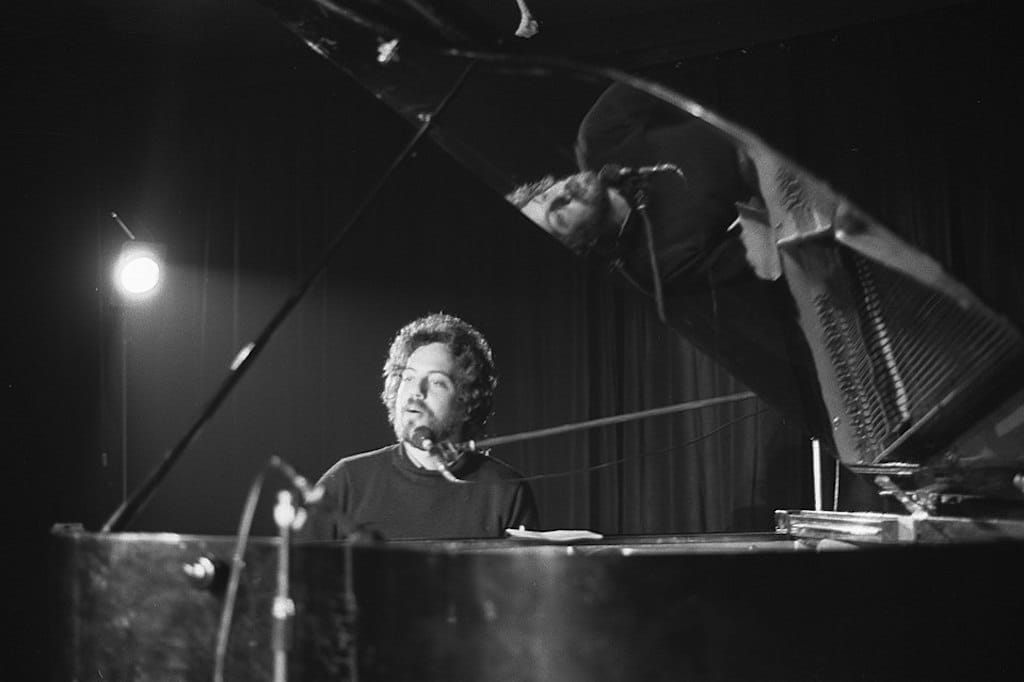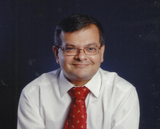Vienna Waits for You: Billy Joel’s Song, Beethoven’s City, and a Personal Journey
Billy Joel’s “Vienna” blends classical inspiration with life lessons. This feature explores the song’s roots, Vienna’s rich musical history, and how the city helped Joel—and the author—find deeper meaning in slowing down.

I returned a couple of months ago from a trip to Europe, my first since the pandemic, and only my second visit to Vienna after almost three decades.
Vienna was almost a jinxed destination for me, because in 2020, I had made elaborate plans to visit the city for Beethoven’s 250th birth anniversary celebrations, with concert bookings for his symphony and piano sonata cycles; but then Covid happened.
Vienna is a city steeped not only in musical, but in medical history as well. Apparently the first documented Caesarean section conducted on a living woman (removing a dead foetus) was performed here in 1549 by Matthia Cornax (1508-1564). Carl von Rokitansky (1804-1878) was the founder of science-based diagnostics, connecting clinical with pathological results in a feedback loop that is standard practice today but was revolutionary in his time. Ignaz Semmelweiss (1818-1865), “saviour of mothers”, made his seminal observations about antisepsis in Vienna’s old Allgemeines Krankenhaus. The latter institution generated three Nobel Prize winners, famously Karl Landsteiner (1868-1943) for his discovery of blood groups (1930). Theodor Billroth (1829-1894) earned the title of “Founding father of modern abdominal surgery” here. And of course, there’s Sigmund Freud (1865-1936), founder of psychoanalysis, whose former residence is now a museum, and even has a Netflix series casting him as a psychoanalytical sleuth-cum action hero! These are just the medical milestone highlights.
Vienna’s music history is better known, and reads like a ‘Who’s who’ of the great composers. The ‘first Viennese school’ comprised Haydn, Mozart, Beethoven, with Franz Schubert sometimes tagged on as well. Apart from the ‘second Viennese school’, (Arnold Schoenberg and his pupils, particularly Alban Berg and Anton Webern, and many others), the other ‘big’ names include Johann Strauss the Elder and Younger, Anton Bruckner, Richard Strauss, Gustav Mahler and so many more.
But permit me in this column to focus on more popular, contemporary fare: Billy Joel and his song ‘Vienna’ from his 1977 album ‘The Stranger’, also released as the B-side to his better-known ‘Just the way you are’ single.
In 2020, in the run-up to my aborted Vienna trip because Covid played spoilsport, I first learned about Joel’s connection to Vienna in a short video titled ‘Billy Joel interview: What does Vienna mean to him (Vienna 2020)’. Shot in black-and-white, Joel wears a baseball cap with the ‘Italian American Club Oyster Bay’ logo as he speaks about Beethoven’s music among his earliest childhood memories, played by his father at the piano and the symphonies on the record-player. He calls Beethoven “the greatest composer that ever lived, the most human (unlike Mozart who was ‘God-like’).” “With Beethoven, I hear the stops and the starts, and the fits and the struggles that he had when he was writing,” which made the music more human to Joel, “because it’s not easy to write that stuff. He struggled; he had to struggle. The man was deaf when he wrote a lot of this great music.”
Joel then reveals how he incorporated the theme from the second movement of Beethoven’s ‘Pathétique’ piano sonata (No. 8 in C minor, Op. 13) into his song ‘This Night’ from his 1983 album ‘An Innocent Man.’ He plays the melody on the piano. “That’s a song right there, even without singers or lyrics….I gave him credit on the album. I couldn’t pay him, because he wasn’t around.”
Then Joel gets around to his personal family connection with Vienna. His parents had separated in the late 1950s when Joel was eight, and his father returned to Europe from the US. He remarried, had another son (Joel’s half-brother) and this family now lived in Vienna. At age 24, Joel decided to reconnect with his father and meet his half-brother for the first time.
“When I wrote ‘Vienna (waits for you)’, I meant that it’s a place where you close the circle. By going to Vienna, suddenly things started to make sense in the world for me. Which is really what the song is about: Slow down, look around you and have some gratitude for the good things in your life. That’s what Vienna represented to me.”
Joel elaborated further in another interview about Vienna always having been a ‘crossroads city’ through history between the East and West, between the Ottoman and Holy Roman (and later Austro-Hungarian) empires, between the Soviet and NATO blocs after World War 2, “a place of exchange, where cultures co-mingle.”
Walking through Vienna with his father, he noticed a nonagenarian lady sweeping the streets, which shocked Joel. But his father pointed out she was content to still be useful to society even in old age, unlike the US (and unfortunately increasingly in our own society here), where the elderly are “put out to pasture”.
After playing the song through, he reveals that the chromatic piano runs in the introduction and interludes were a nod at Kurt Weill (1900-1950), that “sick, middle European kinky decadent thing, you know.”
Joel uses ‘Vienna’ as a metaphor for old age. The way he sees it, as a young person one has a lifetime ahead, so “slow down”; “Where's the fire, what's the hurry about? You better cool it off before you burn it out. You got so much to do and only so many hours in a day.” “It's alright you can afford to lose a day or two;” “You can't be everything you want to be before your time; Dream on but don't imagine they'll all come true. When will you realize, Vienna waits for you.”
So there is a dual message in the song: Don’t “kill yourself in the rat-race” (to paraphrase Joel from another 2008 interview) in young age; and you can still be useful (“Vienna waits for you”) when you are old.
Thinking further on it though, to me Joel’s advice seems valid in a privileged, ‘First-World’ setting. Those of us born into privilege who can have the luxury of ‘gap-years’ or of falling back on ancestral nest-eggs can “afford” to “slow down” or “to miss a day or two.” From our sixteen-plus years working with the underprivileged demographic in Child’s Play India Foundation, one sadly observes that for so many first-generation learners and even white-collar earners, “slowing down” just isn’t an option, however philosophical or romantic the notion. Because the struggle isn’t just for one’s own survival and sustenance, but often for one’s elders, siblings, paying rent to continue having a roof over collective heads, medical expenses, sometimes paying for siblings’ education or marriage. All-too -often, a lot of the less-privileged don’t even make it into the ‘Vienna’ of old age due to poor access to nutrition, potable water, sanitation, living conditions and healthcare.
The privileged among us should certainly pay heed to Joel’s message. In an ideal world, ‘Vienna’ should wait for all of us.
This article first appeared in The Navhind Times, Goa, India.





